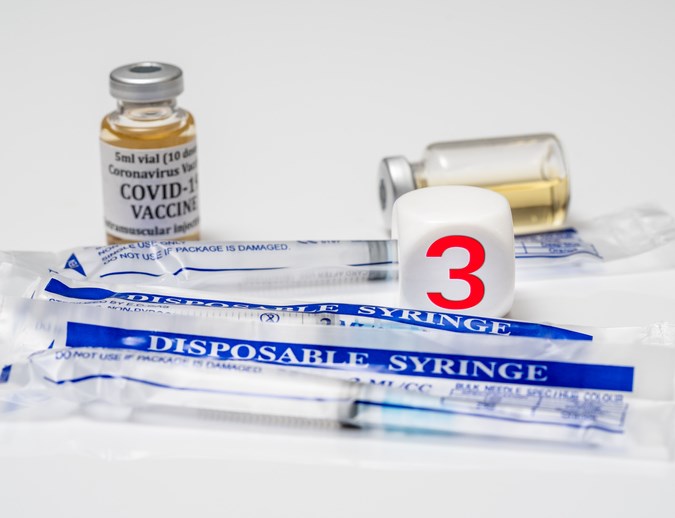WEYBURN – As the Omicron variant sweeps across the country, the board of trustees for the Holy Family School Division learned some of the details about how different this latest version of COVID is.
RN Joan Pratchler, who is contracted by Holy Family for her medical expertise, gave a presentation at their January board meeting to explain how Omicron works, and showed why vaccinations are the best way to fight the virus.
The different forms of COVID arises in the protein spikes around the virus, and the Omicron variant has 52 differences from the Delta variant, with a completely different impact on the body.
The Omicron variant infects the upper bronchial tubes of a person and is very short-lived, while the Delta version will go deep into the lungs and lasts a long time as a result, explained Pratchler.
In answer to comments from people that since Omicron is considered mild, they should just get it and be done with it, she said it’s best to avoid getting the infection ever, because regardless of the variant, COVID causes inflammation of a person’s blood vessels.
“Getting any kind of infection is not a good idea. If you can at all avoid it, that’s what you want to do,” said Pratchler, adding that for an unvaccinated person, even Omicron is not really very mild.
For a vaccinated person, the isolation period is five days, but it’s 10 days if a person is unvaccinated. The shorter time is because a vaccinated person has the antibodies in place, and the Omicron will peter out in that time, where an unvaccinated person needs more time to build up the antibodies to fight the virus while it’s multiplying and replicating inside the body.
Explaining about the tests for COVID, Pratchler noted there are the rapid antigen tests and the PCR tests.
The PCR tests are the “gold standard” and are highly accurate. The results take two to seven days to come back, depending on the backlog at the lab, but it’s accurate as it can detect bits of a virus for a long time, and can test for other viruses, such as influenza A or B.
The rapid tests are reasonably accurate, but only tests the spikes of a virus (the PCR tests the innards of a virus). It can be self-administered and the results are quick.
She noted there can be false positives or false negatives, and the only real sign a person can count on are symptoms of COVID. If those appear, the recommendation is to get tested to confirm for sure if it is COVID.
The drawback of the PCR test is its sensitivity, added Pratchler, saying this test should not be used to prove recovery of COVID, because it can detect the remnants of the virus for up two months after the illness is done and a person is no longer contagious.
Touching on vaccines, the RN noted that the vast majority of vaccines in Saskatchewan are the mRNA versions, Pfizer and Moderna, and there are very few vials of AstraZeneca at the Public Health office for those few people who are allergic to ingredients in the mRNA vaccines.
She pointed out she has administered thousands of vaccines in Regina, and has never had to use an Epipen for an allergic reaction.
The vaccines are valuable as they “wake up” a person’s immune system to produce antibodies. Contrary to what some people believe, a vaccine doesn’t prevent the virus from entering the body, but it helps the body to fight it once it does infect a person.
“The goal of the vaccines is to prevent hospitalizations. It doesn’t prevent the disease, but it’ll help you fight it off,” said Pratchler, noting the flu vaccines are about 30 to 60 per cent effective, and helps most people avoid the hospital when they get the flu.
As Omicron is highly contagious, the best line of defence (other than getting the vaccine) is to continue wearing a mask, physical distancing and practicing proper hand-washing.
The most recent information about Omicron is it can burn through a community in two to four months, and if it’s lasting longer than that, it’s due to unvaccinated people who get sick and spread it some more.
“If you’re unvaccinated, the more damage it can do to your body, as your body takes time to have antibodies,” she said, noting the body then requires more time to repair those damages, usually in a hospital.


